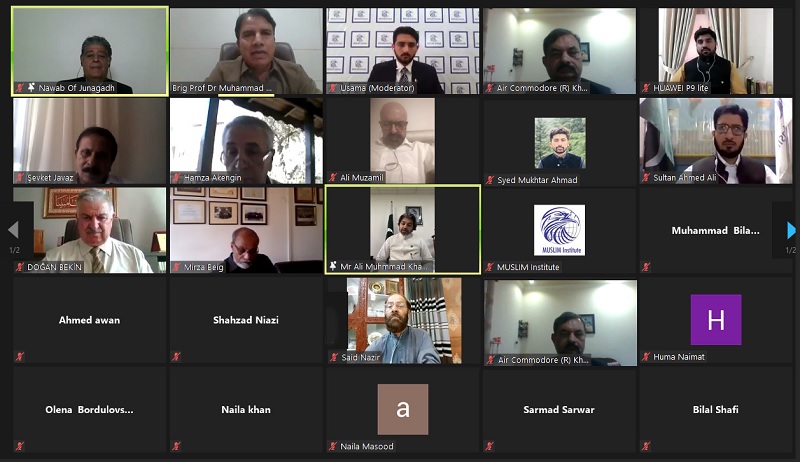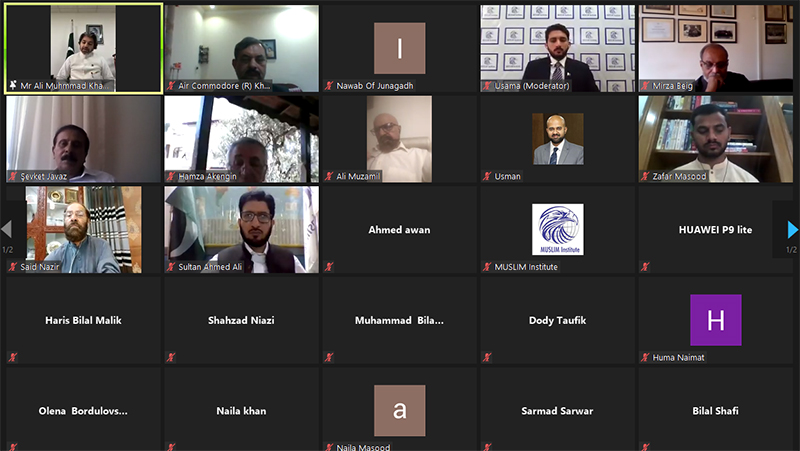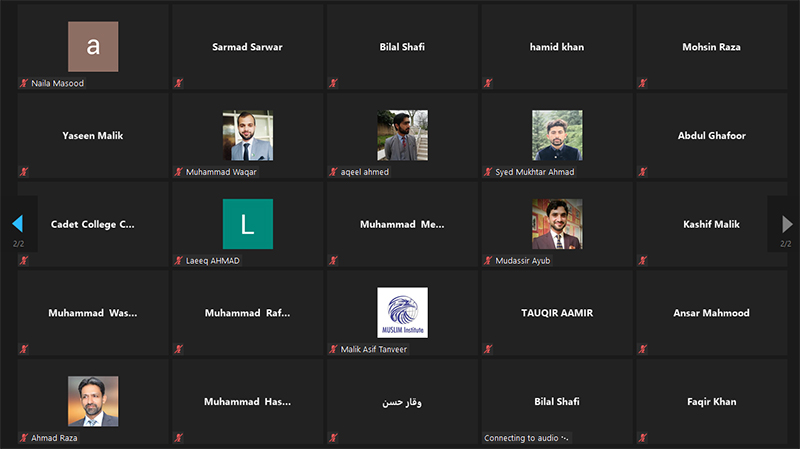| Junagadh was a first class 15 Gun Salute State, situated in the Western State Agency (Kathiawar) of Indo-Pak subcontinent. The area of Junagadh was 3,336 sq. miles consisting of rich and fertile land. It lies on the southwest portion of the Kathiawar Peninsula. It was bounded on the south by the Arabian Sea. The state commanded a sea coast of 84 miles possessing delightful golden sandy beaches. It had 16 ports of which the principal was Veraval. The number of cities and towns totalled up to 999. The capital of Junagadh State was a city also called Junagdh, which is situated on the slopes of the Ginar and Datar Hills and is one of the most picturesque in India; lying approximately 70 miles from the Coast line. |
|
| During the reign of Mughal Emperors Akbar and Jahangir in India, the present Nawab Sahib’s ancestors administered large tracts of Gujrat. During the reign of Mughal Emperor Shah Jehan, Bahadur Khan Babi, one of the ancestors of Nawab Sahib, rose to a position of great influence. His grandson, one of the most distinguished soldiers and statesman of his time, under the Mughal viceroy of Gujrat, established his own rule at Junagadh, with the title of Bahadur Khan in 1735. The rulers of Junagadh were thence forward styled “Nawab”. The present Nawab Shaib, Nawab Muhammad Jahangir Khanji is eleventh in succession and ninth in decent from Bhadur Khanji, first Nawab of Junagadh state. |
|
|
 |
| Junagadh was the premier state of Kathiawar and therefore its rulers enjoyed the status of being the Premier Chief. The state maintained the Imperial Service Lancers called “Junagadh State Forces”. This was a regular organized body and recognized as “A” class troops of the Indian State Forces. Over this, an organized body of Infantry called “The Mohabat Khanji Infantry” was also maintained by the state. The state’s principal products were cotton, wheat, rice, sugarcane, tobacco, coconuts, ground nuts, bamboo, sitafal, mangoes etc. The state ran its own Railway called “Junagadh State Railway”, while education was free for all citizens; hospitalization and medicine were the express responsibility of the State Government. Facilities for distribution of free cooked meals were made available by the government for the poor and the needy. |
|
| Before and at the time of partition in 1947, the Sub-continent had two geographical entities. One part was the British India which was directly administered by the Imperial British, the second part was divided into approximately 562 Princely States, which were administered by their respective ruling Princes but fell under the suzerainty of Imperial British, through treaties, engagements etc. When the Indian independence Act 1947 came into effect, the paramountcy of the British Crown lapsed, at that time the Indian States under their respective rules had been given a right to choose whether to accede to the dominions of Pakistan or India or remain independent. |
|
|
 |
| The present Nawab Sahib’s grandfather H. H. Sir Mohabat Khanji III, opted to accede to Pakistan. Hence, on the 15th September 1947, the Instrument of Accession was executed. In fact, decision of accession was not solely taken by the Nawab of Junagadh, but was also endorsed by the State Council, consisting of Muslim as well as Hindu members, who were representatives from respective communities of the State. On the refusal of Nawab Sahib to be brow beaten by the threats hurled by the Indian authorities, the government of India with the aid of its mighty military power throwing to the winds all the principals of morality and in utter violation of provisions of International Law and the Indian Independence Act, illegally blockaded the State. While pretending to support the Junagadh administration, Indian forces entered in Junagadh on the 9th November, 1947 and took over possession of the territories of Junagadh State. It was the first violation of international borders of Pakistan and Pakistan’s sovereignty was challenged. |
| Since then Nawab of Junagadh and then his descendants are staying in Pakistan. The dedication and commitment of Nawab of Junagadh with the just cause of Junagadh is exemplary. Pakistan filed a case against the Indian aggression on Junagadh soil, where the case is still outstanding before the U.N.O. till this day. Junagadh is yet another incomplete agenda of the partition of Pakistan and India. The choice of Nawab of Junagadh was not actualized by India due to the geography of the state. Junagadh was also a well-developed and a significant revenue generating state of that time which lured India to capture Junagadh. |
|
|
|
|
 |
| Before the partition of the Subcontinent people like V.P Menon, Nehru, and Lord Mount Batten threatened all 562 Princely states to annex with India. However, Junagarh was one of the states which refused to annex with India. Furthermore, Nawab of Junagarh stated that he would only annex with Pakistan. Besides, people raise questions about the instrument of accession of Maharaja Hari Singh and compare it with Junagadh. The answer to their question is that Hari Singh did not sign the instrument before Indian invasion of 27 October, 1947. On the other hand, Nawab of Junagarh not only signed the instrument of accession with Pakistan but also requested for military help from Pakistan. Even the flag of Pakistan remained hoisted over the buildings of state institutions for one month after Junagadh acceded to Pakistan. Additionally, Junagadh instrument was in complete harmony with international law which, later on, also conformed to the spirit of Vienna Convention on Law of Treaties 1969. It is a legal document and Pakistan can pursue the case of Junagarh on international forums e.g. United Nations and International Court of Justice. |
|
Due to Pakistan’s maximum concentration towards the issue of Kashmir, Junagadh could not attain the attention of international community as well as that from policy makers of Pakistan. On August 4, 2020, Pakistan included the state of Junagadh in its new political map. It is now obligatory for the government to lead the issue on various international forums. Now the agenda is, how Islamabad can pursue the case on international forums? It is right time for Pakistan to raise the issue because other neighbours of India have also revealed their Political maps. Nepal, Bhutan, and China have also reclaimed areas in maps that are illegally occupied by India. Again, it is right time for Pakistan to undo all occupations which India has been occupying since 1947.
‘Accession day of Junagadh’ September 15, and the fall of Junagadh November 9 should be celebrated and commemorated respectively at government level. |
|
|
 |
| Pakistani diplomats across the globe should also raise voice through their respective consulates and embassies. The government of Pakistan should establish Junagadh house in Islamabad. Media houses should play an active role in the dissemination of Junagadh issue to the common Public. Effective projection will surely bring good results. Furthermore, almost 3 million members of Junagadh community reside in Pakistan, mostly in Karachi. However, Junagadh community faces socio-economic problems, these people accompanied Nawab of Junagadh during his migration to Pakistan. However, the government has always considered itself responsible for the socio-economic development of Junagadh community. In this respect, the government of Pakistan should pay special heed to the uplift of Junagadh community in various walks of life. Immediate measures should be taken to address their grievances especially by embracing the community with economic opportunities. |
|
| We still need a lot of efforts on Junagadh issue. By utilizing our diplomatic channels vibrantly, there is need to highlight the issue of Kashmir and Junagadh simultaneously on all relevant forums. Pakistan will continue to fight this case as Pakistan has the legal and just claim on Junagadh. The alive nations do not forget the issues of national integrity. And Pakistan will definitely do its best to get back its territory. Although, the foreign ministry of Pakistan is very concerned regarding the issue but still Junagadh issue needs special attention and the ministry should utilize all possible diplomatic sources to highlight the issue. Academic research is also required to highlight associated problems with the case. The information regarding the issue should be placed on google, social media, and print media. It is also the responsibility of our national media to highlight the incomplete agenda of Junagadh. |
|
|
 |
| After the remarks by guest speakers, interactive session was held. Speakers comprehensively answered to the questions raised by the audience. A brief summary of discussion is as follows: |
| As far as the mainstream media is concerned, the electronic media has not highlighted the issue at a demanding level. The youth of Pakistan has power in its hands and now in the shape of social media. YouTube channels, Facebook, Twitter, Instagram and other social media outlets should be used by the youth to establish its presence. Following the revocation of the special status of Occupied Jammu and Kashmir in August, the youth of Pakistan and Kashmir across the globe played a very proactive part. Resultantly, many Facebook accounts, Twitter accounts were blocked because the Indians have significant influence on these social media outlets. However, the youth of Pakistan, brothers and sisters of Kashmir all over the world are playing their part. They would be creating accounts again and will never surrender. Of course, the government have a key role to play but it cannot fully control all the things. Moreover, there is a dire need to lay the foundations of such research think tanks dedicated to Junagadh. |
|
|
|
|
 |
|
|
|
|